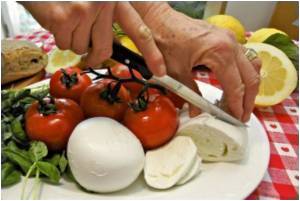Fructose intolerance is common in children with recurrent or functional abdominal pain, but the condition can be effectively managed with a low‐fructose diet.

Fructose intolerance is typically diagnosed by exclusion, according to researchers Daniel Lustig, M.D. and Bisher Abdullah, M.D., pediatric gastroenterologists with the Mary Bridge Children’s Hospital and Health Center in Tacoma, WA, who explained that once other GI conditions like Crohn’s disease and ulcerative colitis are ruled out, a hydrogen breath test is given to the patient. If the patient’s breath hydrogen exceeds 20 points above baseline, then the patient is likely fructose intolerant.
Breath hydrogen test (BHT) for fructose was performed in all patients in the study and it was positive for fructose intolerance in 132 of 245 patients (53.9 percent). A total of 113 of 245 (46.1 percent) of patients had a negative BHT for fructose intolerance. All of the 132 patients with a positive BHT for fructose had a nutritional consult with a registered dietician and were placedon a low‐fructose diet. Using a standard pain scale for children, 88 of the 132 patients (67.7 percent) reported resolution of symptoms on a low‐fructose diet.
“With fructose in so many foods, ranging from apples to packaged foods with the wide‐spread use of high fructose corn syrup, it is difficult to avoid, so the challenge is finding those foods with low fructose and still maintain a healthy nutritional balance that patients will dhere to,” said Dr. Lustig, “especially teenagers.” He said fructose intolerance is seems to be more prevalent in teenage girls with chronic abdominal pain. In his practice, Dr. Lustig said he typically sees three or four teenage girls a week with either a new diagnosis of fructose intolerance or for folow‐up.
“But the good news is that over half of patients who are fructose intolerant and are able to maintain a low‐fructose diet will notice an immediate improvement in their symptoms,” concluded Dr. Lustig.
Source-Medindia











